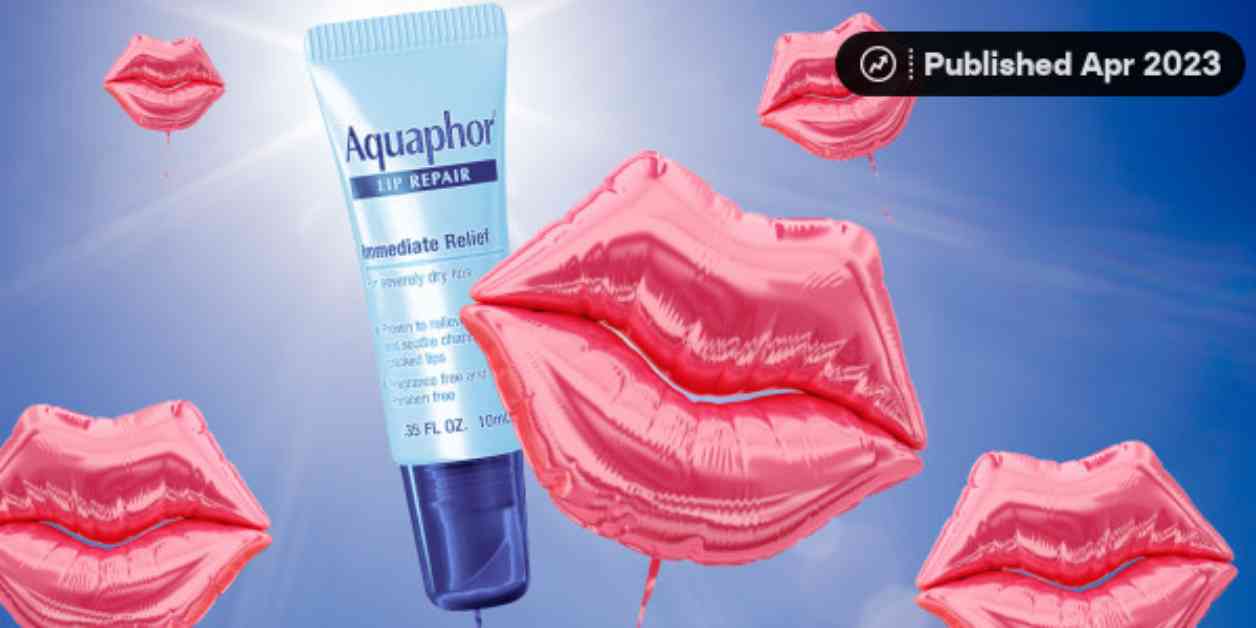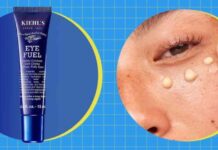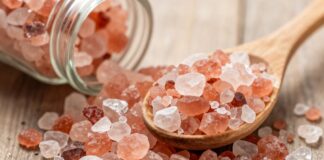Aquaphor, a popular petroleum-based product, has been making headlines recently due to its potential to cause sunburn on the lips. One such case is that of Joan McKenzie Wilburn, a 20-year-old from Dallas, who experienced a severe lip sunburn after using Aquaphor during her spring break trip to Mexico. Wilburn applied the product continuously throughout the day, only to wake up the next morning with swollen, blistered lips. Her lips were so painful and uncomfortable that she was diagnosed with sun poisoning, a severe form of sunburn that can lead to dehydration, blisters, pain, swelling, and even fever and chills.
Wilburn’s experience serves as a cautionary tale for those considering using Aquaphor in the sun. While some may view it as a quick and easy way to achieve a fuller pout, the risks of sun damage far outweigh the cosmetic benefits. Dermatologists warn against using petroleum-based products like Aquaphor on the lips without SPF protection, as they do not provide adequate defense against harmful UV rays. Instead, they recommend opting for an SPF lip balm to protect the delicate skin on the lips.
The Dangers of Using Petroleum-Based Products in the Sun
Applying petroleum-based products like Aquaphor on the lips before sun exposure can lead to sunburn due to the lack of SPF protection. While these products are effective at locking in moisture and preventing dryness, they do not offer the necessary protection against UV radiation. This can result in swelling, redness, peeling, and blistering of the lips, as seen in Wilburn’s case.
Dr. Ranella Hirsch, a board-certified dermatologist, warns against intentionally causing a sunburn on the lips, as it can lead to hyperpigmentation, pain, infection, and even skin cancer. The lips are a unique area of the body, with thinner and more sensitive skin compared to other parts. Using petroleum-based products in the sun can exacerbate these risks and potentially lead to long-term damage.
The Importance of Sun Protection for Lips
The skin on the lips is particularly vulnerable to sun damage, as it lacks the same protective layers found on other parts of the body. Lips are composed of only three to four layers of skin, making them more susceptible to sunburn and other forms of damage. Without proper sun protection, chronic sun exposure can increase the risk of developing precancerous lesions and skin cancer on the lips.
Dr. Elizabeth Bahar Houshmand, a fellow at the American Academy of Dermatology, emphasizes the importance of using lip care products with SPF to shield the lips from UV radiation. Petroleum-based products like Aquaphor or Vaseline do not offer this protection and can actually exacerbate sun damage. It is crucial to prioritize sun safety by applying sunscreen to the lips and wearing protective clothing when spending time outdoors.
Symptoms and Treatment of Sunburned Lips
Sunburned lips can manifest in various ways, including swelling, redness, peeling, and blistering. These symptoms indicate damage to the skin caused by excessive sun exposure without adequate protection. To alleviate swelling and discomfort, experts recommend using a cool compress on the lips and avoiding petroleum-based products that can trap heat and prolong the burn.
In cases of mild sunburn, anti-inflammatory medications may help reduce swelling and pain. It is essential to avoid peeling off the skin or popping blisters, as this can increase the risk of infection and delay healing. Instead, focus on cooling and hydrating the lips to promote recovery and prevent further damage.
Preventing Sunburn on the Lips
To prevent sunburn on the lips, it is essential to use sunscreen with an SPF of 15 or higher and reapply it regularly when exposed to the sun. Additionally, choosing a lip balm with SPF protection can help shield the lips from UV rays and reduce the risk of sun damage. Practicing sun safety measures such as wearing protective clothing and avoiding tanning can also lower the risk of developing skin cancer on the lips.
In conclusion, while Aquaphor and other petroleum-based products may offer benefits for moisturizing the lips, they should not be used as a substitute for sunscreen in the sun. Protecting the lips from UV radiation is crucial for maintaining healthy skin and reducing the risk of sun damage and skin cancer. By following expert recommendations and prioritizing sun safety, individuals can enjoy the sun without compromising the health of their lips.


















